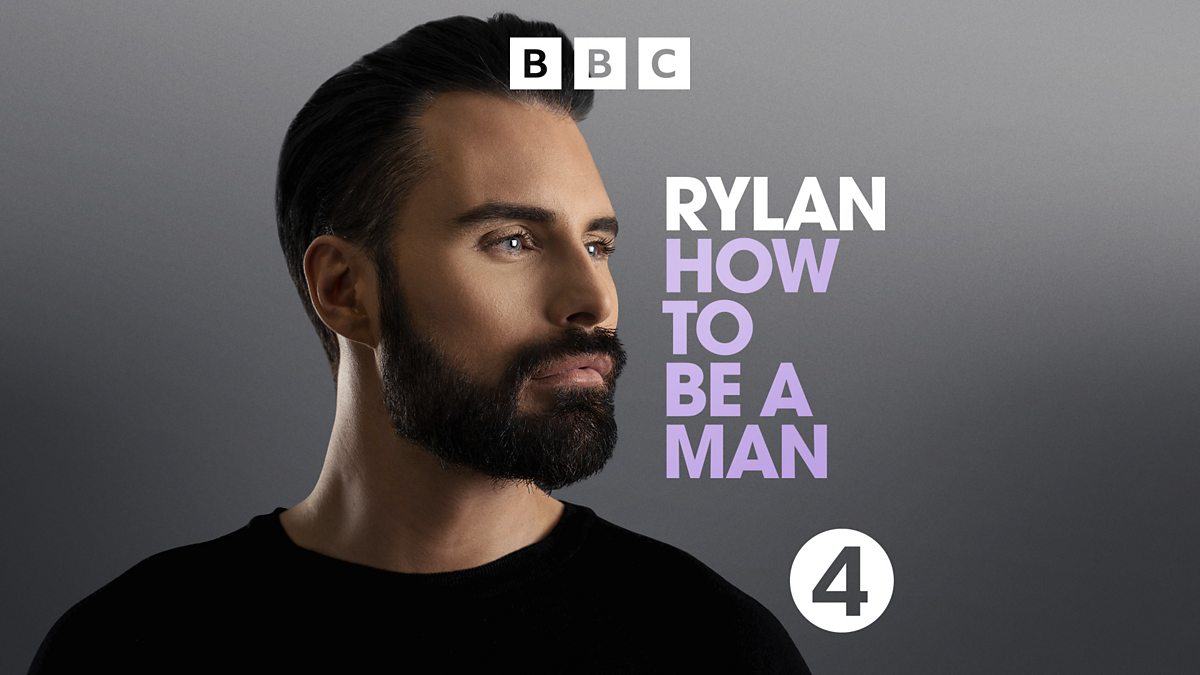Let’s talk about something that’s been on my mind lately—what exactly does it mean to “be a man”? We hear this phrase all the time, but rarely do we stop and think about what it really means. Is it about strength, courage, or something deeper? Or is it just society’s way of boxing us into outdated stereotypes? Let’s dive into this topic because understanding what it means to truly be a man could change the way you live your life.
When people say "be a man," they often think of physical strength, emotional stoicism, and an unwavering sense of duty. But let’s face it, those ideas are so 1950s. In today’s world, being a man is about so much more than that. It’s about authenticity, vulnerability, and knowing who you are at your core. And trust me, that’s not easy. But hey, no one ever said growing up was going to be simple.
This article isn’t just about giving you a definition—it’s about helping you understand what masculinity means in the modern world. Whether you’re trying to figure out how to balance traditional values with contemporary ideals or simply want to know how to be the best version of yourself, this is the place for you. So grab a coffee, sit back, and let’s break down what it means to truly be a man.
Read also:Avalon Mira The Ultimate Guide To Your Dream Destination
The Origins of “Be a Man”
Ever wondered where the phrase "be a man" even came from? It’s not like someone just randomly decided to start throwing it around. Turns out, the roots of this expression go way back. Historically, masculinity has always been tied to certain expectations—whether it was fighting in battles, providing for the family, or protecting loved ones. Back in the day, being a man meant stepping up when things got tough and never showing weakness. But here’s the thing: times have changed.
Historical Context of Masculinity
In ancient civilizations, masculinity was often linked to physical prowess and leadership. Think about the Spartans—they were all about toughness and discipline. Fast forward to the Victorian era, and you’ve got this whole "stiff upper lip" mentality. Men weren’t supposed to cry or show emotion because, well, that was seen as weak. But guess what? Humans are emotional beings, and suppressing those emotions can lead to some serious problems.
- Men in ancient Greece were expected to excel in both warfare and philosophy.
- The Industrial Revolution brought new roles for men, focusing on being breadwinners.
- By the mid-20th century, the idea of the "strong, silent type" became popularized through media.
How Society Defines Masculinity Today
Nowadays, society’s definition of masculinity is evolving. People are starting to realize that being a man doesn’t mean you have to be a superhero. You don’t have to suppress your feelings or pretend like everything’s okay when it’s not. Instead, modern masculinity encourages men to be authentic, compassionate, and self-aware. And honestly? That’s a breath of fresh air.
But here’s the catch: change doesn’t happen overnight. There are still plenty of people clinging to old-school ideas about what it means to be a man. And let’s be real, those ideas can be toxic. Toxic masculinity isn’t just harmful to women—it’s also damaging to men themselves. So how do we move forward? Let’s take a look at some key traits that define modern masculinity.
Key Traits of Modern Masculinity
Modern masculinity is all about balance. It’s about embracing your strengths while also acknowledging your vulnerabilities. Here are some traits that define what it means to be a man in today’s world:
Authenticity
Being authentic means staying true to who you are, no matter what society says. It’s about owning your quirks, flaws, and all the things that make you unique. Authenticity isn’t about fitting into a mold—it’s about creating your own path and sticking to it.
Read also:Zen Scott Feldman Unveiling The Mindfulness Gurus Journey And Philosophy
Vulnerability
Vulnerability gets a bad rap, but it’s actually one of the strongest qualities a man can have. Being vulnerable means being open about your feelings, admitting when you’re wrong, and asking for help when you need it. It takes guts to be vulnerable, and that’s something we should all strive for.
Empathy
Empathy is the ability to understand and share the feelings of others. In a world that’s often divided, empathy is more important than ever. Being empathetic means listening to others, putting yourself in their shoes, and showing kindness even when it’s hard.
Breaking Down Toxic Masculinity
Toxic masculinity is a term that gets thrown around a lot, but what does it really mean? At its core, toxic masculinity refers to harmful stereotypes and behaviors that are associated with traditional ideas of masculinity. Things like aggression, dominance, and the suppression of emotions fall under this category. And let me tell you, these behaviors aren’t just bad for society—they’re also bad for men themselves.
Why Toxic Masculinity is Harmful
When men are taught to suppress their emotions, it can lead to a whole host of mental health issues. Studies have shown that men are less likely to seek help for depression or anxiety because they feel like they need to "tough it out." This can result in feelings of isolation, frustration, and even anger. And let’s not forget the impact on relationships—how can you connect with someone if you can’t express your true self?
How to Combat Toxic Masculinity
Combatting toxic masculinity starts with education and awareness. It’s about teaching boys and men that it’s okay to be vulnerable, that it’s okay to ask for help, and that it’s okay to show emotion. It’s also about challenging harmful stereotypes and promoting positive role models. And hey, if you’re a man who’s struggling with toxic masculinity, don’t be afraid to reach out for support. You’re not alone, and there are people who care about you.
The Role of Mental Health in Masculinity
Mental health is a crucial part of being a man, but it’s often overlooked. For too long, men have been told to "suck it up" and "deal with it" when it comes to their emotions. But guess what? That’s not healthy. Taking care of your mental health is just as important as taking care of your physical health, and there’s no shame in seeking help when you need it.
Why Mental Health Matters
Mental health affects every aspect of our lives—from our relationships to our careers to our overall well-being. When men neglect their mental health, it can lead to serious consequences, including substance abuse, domestic violence, and even suicide. But here’s the good news: by prioritizing mental health, men can live happier, healthier, and more fulfilling lives.
Tips for Improving Mental Health
- Practice mindfulness and meditation to reduce stress.
- Exercise regularly to boost endorphins and improve mood.
- Talk to a therapist or counselor if you’re struggling with emotional issues.
- Build a support system of friends and family who understand and care about you.
Relationships and Masculinity
Relationships are a big part of life, and they play a significant role in shaping our sense of masculinity. Whether it’s romantic relationships, friendships, or family ties, the way we interact with others says a lot about who we are as men. But here’s the thing: healthy relationships require communication, trust, and respect—and those things don’t just happen overnight.
Communication in Relationships
Communication is key to any successful relationship. It’s about being open and honest with your partner, listening to their needs, and expressing your own. And let’s be real, that’s not always easy. But by working on your communication skills, you can build stronger, more meaningful relationships.
Respect and Equality
Respect and equality are non-negotiables in any relationship. Whether you’re dating, married, or just friends, treating others with respect and equality is essential. It’s about recognizing that everyone deserves to be heard, valued, and treated with kindness. And when you approach relationships with that mindset, amazing things can happen.
Being a Man in the Workplace
The workplace is another area where masculinity comes into play. Whether you’re a CEO, a teacher, or a construction worker, the way you carry yourself at work says a lot about who you are as a man. But here’s the thing: being a man in the workplace isn’t about being the toughest or the most aggressive—it’s about being professional, respectful, and ethical.
Professionalism and Ethics
Professionalism and ethics are the cornerstones of success in any career. It’s about doing the right thing, even when no one’s watching, and treating your colleagues with respect and fairness. And let’s not forget the importance of teamwork—no man is an island, and sometimes the best results come from collaboration.
Work-Life Balance
Work-life balance is another important aspect of being a man in the workplace. It’s about prioritizing your time, setting boundaries, and making sure you have space for the things that matter most to you. Whether it’s spending time with family, pursuing hobbies, or just relaxing, finding that balance is key to living a fulfilling life.
Conclusion: Embrace Your True Self
So there you have it—the modern take on what it means to be a man. It’s about authenticity, vulnerability, and empathy. It’s about breaking free from toxic stereotypes and embracing who you truly are. And most importantly, it’s about living a life that’s meaningful, fulfilling, and true to yourself.
Now I want to hear from you. What does it mean to be a man in your eyes? Leave a comment below and let’s keep the conversation going. And if you found this article helpful, don’t forget to share it with your friends and family. Together, we can redefine what it means to truly be a man.
Table of Contents
- The Origins of “Be a Man”
- Historical Context of Masculinity
- How Society Defines Masculinity Today
- Key Traits of Modern Masculinity
- Authenticity
- Vulnerability
- Empathy
- Breaking Down Toxic Masculinity
- Why Toxic Masculinity is Harmful
- How to Combat Toxic Masculinity
- The Role of Mental Health in Masculinity
- Why Mental Health Matters
- Tips for Improving Mental Health
- Relationships and Masculinity
- Communication in Relationships
- Respect and Equality
- Being a Man in the Workplace
- Professionalism and Ethics
- Work-Life Balance


